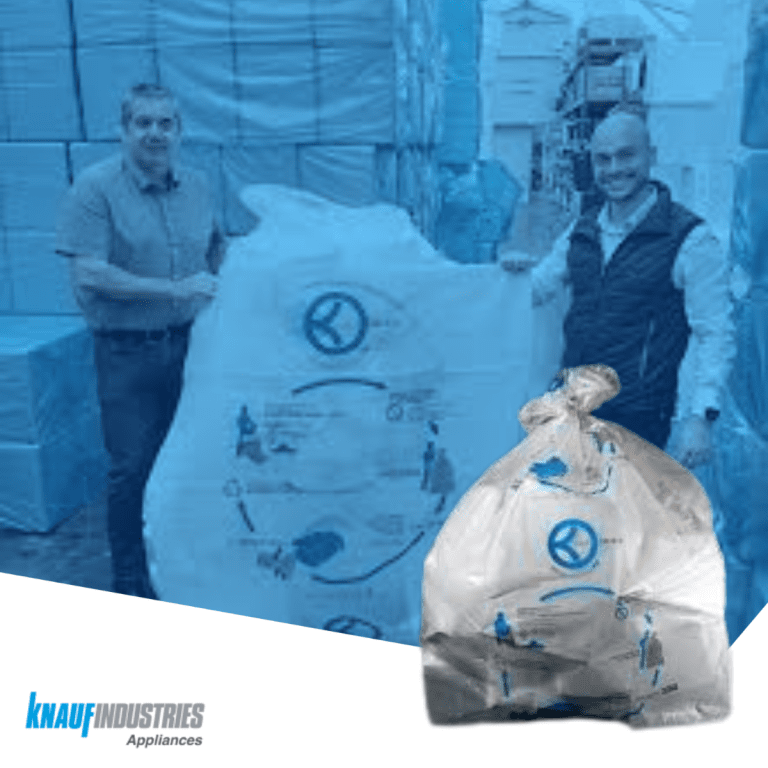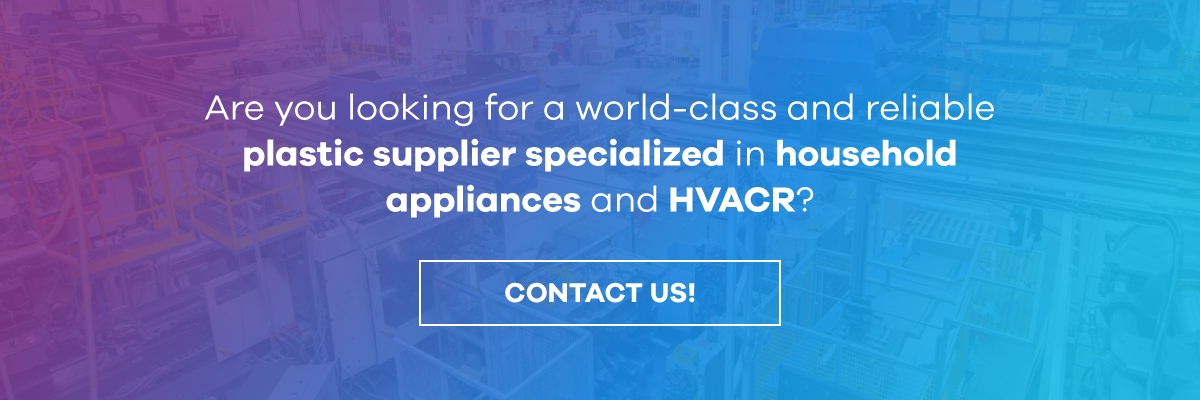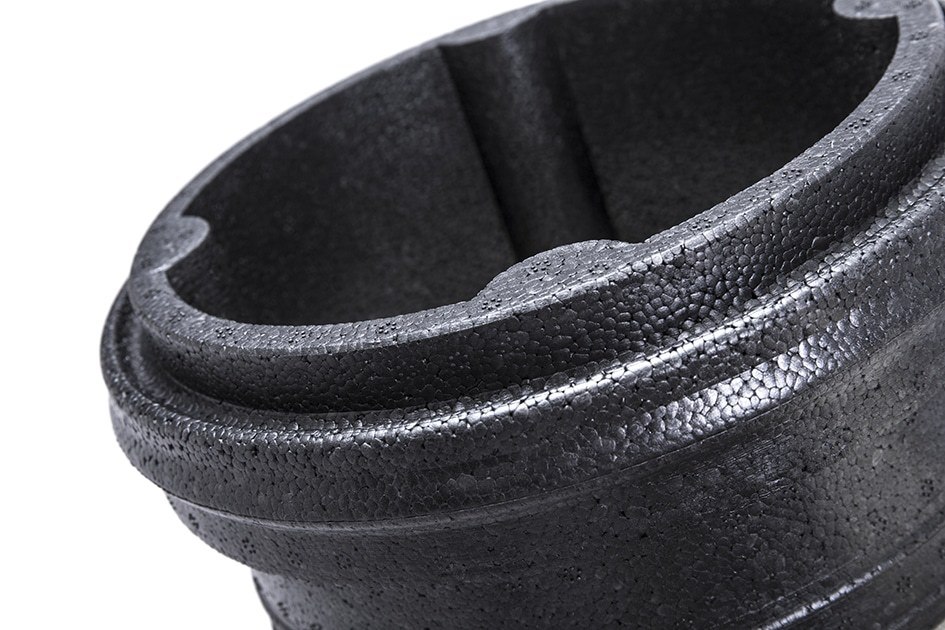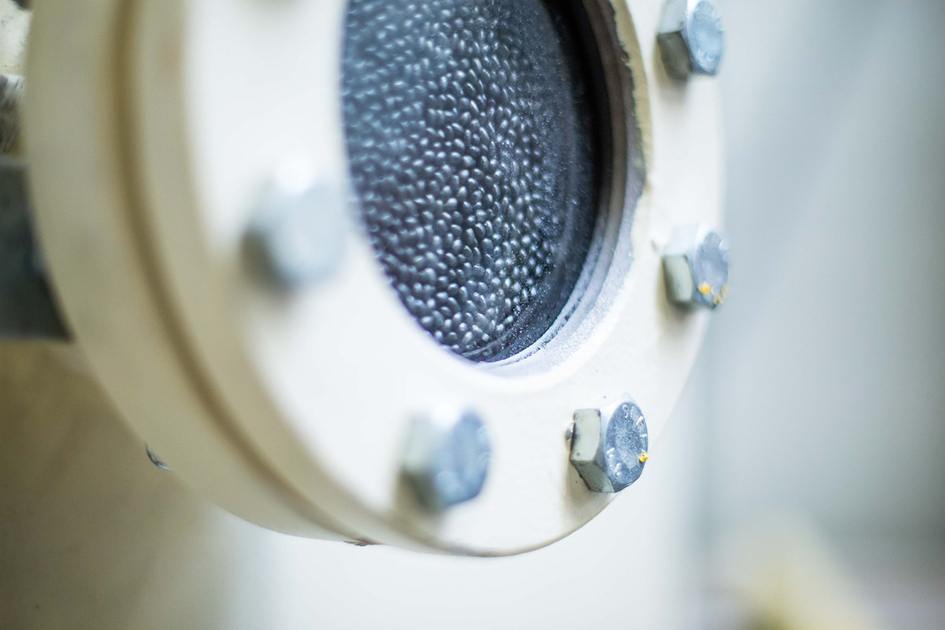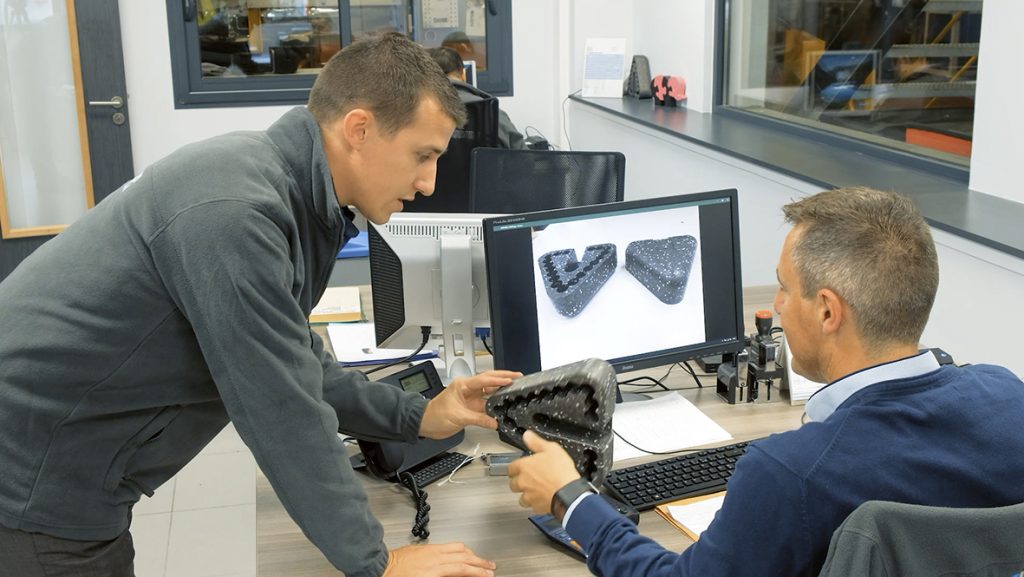With the rise of a growing consumer and governmental consciousness around the environment, foam packaging recycling stands out as an important issue in the packaging industry.
At Knauf Appliances, we are confident in the sustainability of choosing EPS and EPP foam packaging, as it remains a mono-material 100% recyclable and efficient packaging solution for many industries. In fact, foam packaging recycling is already part of circular economy models that give a new life to durable materials such as EPS and EPP. Keep reading to find out about this material’s sustainability and its recycling process.
An introduction to a circular economy: what does circular economy mean?
The European Union defines the circular economy as a production and consumption model where the life cycles of existing materials and products are extended through reusing and recycling so that less waste is produced.
As opposed to linear economic models, the circular economy focuses on waste prevention through a wide variety of practices, including re-using and applying ecodesign.
An increasing interest in the circular economy has grown as waste production has grown in the preceding decades, reaching 2.5 billion tonnes of waste just in the European Union every year. As a result, national and international legislation has been encouraging the shift to circular models in the past years.
Circular economy and foam packaging recycling
Packaging waste stands in the middle of the circular economy debate, as the rise of e-commerce has put new pressure on companies to find alternative, sustainable packaging solutions.
Despite plastic’s bad reputation, foam packaging recycling makes this packaging material a sustainable alternative to other materials: plastic foams like EPP and EPS are 100% recyclable, given the right recycling structures and collection points are established.
How to recycle foam packaging
Foam packaging recycling of certain plastic materials such as EPP and EPS actually takes 91% fewer resources compared to recycling processes of materials such as paper. Depending on the type of packaging waste, this recycling process usually takes two forms:
- Physical recycling foam packaging recycling: an economic and efficient process, plastic materials are crushed in order to generate new ones which are then incorporated into construction materials and other products. However, the obtained plastic cannot be used in certain packaging solutions, such as food packaging.
- Dissolution Recycling foam packaging recycling: while this process is more costly and complex, it preserves styrene molecules, so that its quality remains intact and thus can be used even for food packaging solutions.
Foam packaging recycling: materials made from plastic waste
An important step in foam packaging recycling is to reincorporate foam waste into new packaging solutions.
At Knauf Industries we provide three possibilities:
- Celoops® is an innovative material that incorporates plastic waste into efficient and hygienic packaging solutions. It’s certified by REDcert² standards and 100% recyclable.
- We also provide traditional expanded polystyrene materials with a defined content of recycled raw plastic materials through our rEPP and rEPS products. For instance, companies can choose our rEPS material incorporating a 20% recycled material content, and other varieties up to rEPS 100%, all depending on the intended final use of the packaging product.
You might also be interested in: Sustainable Packaging solutions of vegetal plasyic
Knauf Circular gives a new life to foam packaging waste
Our Knauf Circular program confirms our commitment to providing companies with sustainable foam packaging solutions.
Through developing this program, we provide users or EPS products (industrials firms, retail sector, insulation installation contractors, recycling centers, etc.) with on-site collection services for their EPS packaging waste. This way, we guarantee the material is processed responsibly and given a new life.
Expanded polypropylene recycling
Expanded polystyrene is a cellular plastic material made of 98% air and 2% of a refinery by-product, naphtha.
Because EPS fluidizes under heat conditions and then hardens upon cooling, it means it can be recycled ad infinitum, making EPS an outstanding material to be incorporated into circular economy models.
Through Knauf Circular, we make sure all EPS production waste is evaluated to be reintroduced into the manufacture of new EPS products.
Knauf Circular materials
At Knauf Industries we’ve gone a step further by developing our own sustainable and circular materials.
In March 2020 we launched NEOPS®, an expanded foam certified by TÜV as being of non-petrosourced origin according to REDcert². Since then, we’ve expanded the possibilities for companies looking for sustainable foam packaging solutions:
- R’KAP®: a recyclable mono-material suitable for packaging food and processed products and made 100% from post-consumer recycled materials.
- CELOOPS®: as explained above, this is a 100% recyclable expanded mono-material foam made from recycled plastic waste ideal for packaging solutions as it offers the same technical characteristics as EPS.
At the same time, we work hand in hand with our partners to help them develop personalized packaging solutions that incorporate eco-design into their very core.
You might also be interested in: How to optimize your eCommerce packaging
Energy recovery: an alternative for plastic packaging after use
Energy recovery through incineration consists of the combustion of organic substances in waste materials, representing an alternative for the end life of plastic waste encouraged by current legislation (law No. 92-646 of 13/07/92).
The incineration of 1kg of EPS replaces 1.3 liters of heating fuel and can be used for urban heating or electricity generation, among other processes. In fact, 300,000 tonnes of oil are saved this way in France every year.
At Knauf Industries we’ve remained a top player in the foam packaging industry for more than 4 decades, providing expanded polystyrene and cellular resin protection and logistic packaging solutions.
As sustainability has entered public concerns, so has our commitment has grown to provide companies with sustainable packaging solutions. Our Knauf circular program and the development of new eco-materials attest to the truth of this statement.
Get in touch with us to learn more about how we can help your company develop sustainable packaging solutions.
